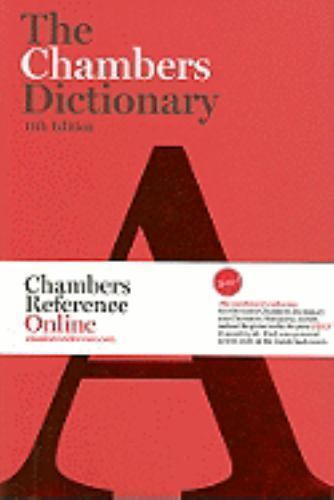

Chamberss Etymological Dictionary of the. "About this title" may belong to another edition of this title. Reviews arent verified, but Google checks for and removes fake content when its identified. the most user-friendly of etymological dictionaries'― University of Georgia As well as the core business of publishing dictionaries and thesauruses, Chambers also publishes a range of titles on grammar and usage, single-volume reference titles on science, history, biography and quotations, as well as titles for Scrabble® and crosswords. Chambers is based in Edinburgh, as it always has been, and employs editors with a wide range of skills on dictionaries and other titles for a variety of users, including students and teachers of English as a foreign or second language. The Chambers Etymological Dictionary holds all the answers for any person curious about the origins of the words they use, and how these words have changed over time. The word is used in its general sense in a letter of Sir Walter Scott (1796).This internationally renowned reference publisher continues its celebrated tradition of excellence into the present day with such informative and authoritative works as the "Chambers Crossword Dictionary", "Chambers Encyclopedia", "Chambers Biographical Dictionary" and the all-new "Chambers Dictionary of Quotations". Anyone kissing the stone is supposed to become skillful in flattering and coaxing. With over 30,000 entries, Chambers Dictionary of Etymology is a prestigious and scholarly dictionary that. 1766, Lady Blarny (for Blarney), a smooth-talking flatterer in Goldsmith's the Vicar of Wakefield, her name being a literary contrivance in allusion to Blarney Stone, a stone in a castle near Cork, Ireland. Number of Pages: 1320 Pages Product Information. Sample entry from the Chambers Etymological Dictionary: blarney n. First published as the Barnhart Etymological Dictionary, the Chambers Dictionary of Etymology offers a unique combination of approachability and authoritativeness in an accessible single-volume format, making it an essential etymological resource for the expert, and a fascinating reference for the general reader. For many years academics, wordsmiths, crossword lovers, and language enthusiasts of all stripes have turned to this celebrated volume as their reference of choice in lexical matters. The Chambers Etymological Dictionary holds all the answers for any person curious about the origins of the words they use, and how these words have changed over time.


Over 30,000 detailed entries trace words back to their Proto-Germanic or Indo-European roots, and include words borrowed from other languages, as well as the sources and dates of their first recorded use. This fascinating dictionary explores the development of meaning, spelling, and pronunciation of over 25,000 English words.

An important etymological resource for the expert, it is also a useful reference source for the general reader. How are the words 'door' German 'Tzr' and Sanskrit 'dvar' related? When did the word Blarney first appear in print? What's the linguistic history of the word 'history'? The Chambers Etymological Dictionary holds all the answers for any person curious about the origins of the words they use, and how these words have changed over time. With over 30,000 entries, Chambers Dictionary of Etymology is a prestigious and scholarly dictionary that explains where English words come from.


 0 kommentar(er)
0 kommentar(er)
